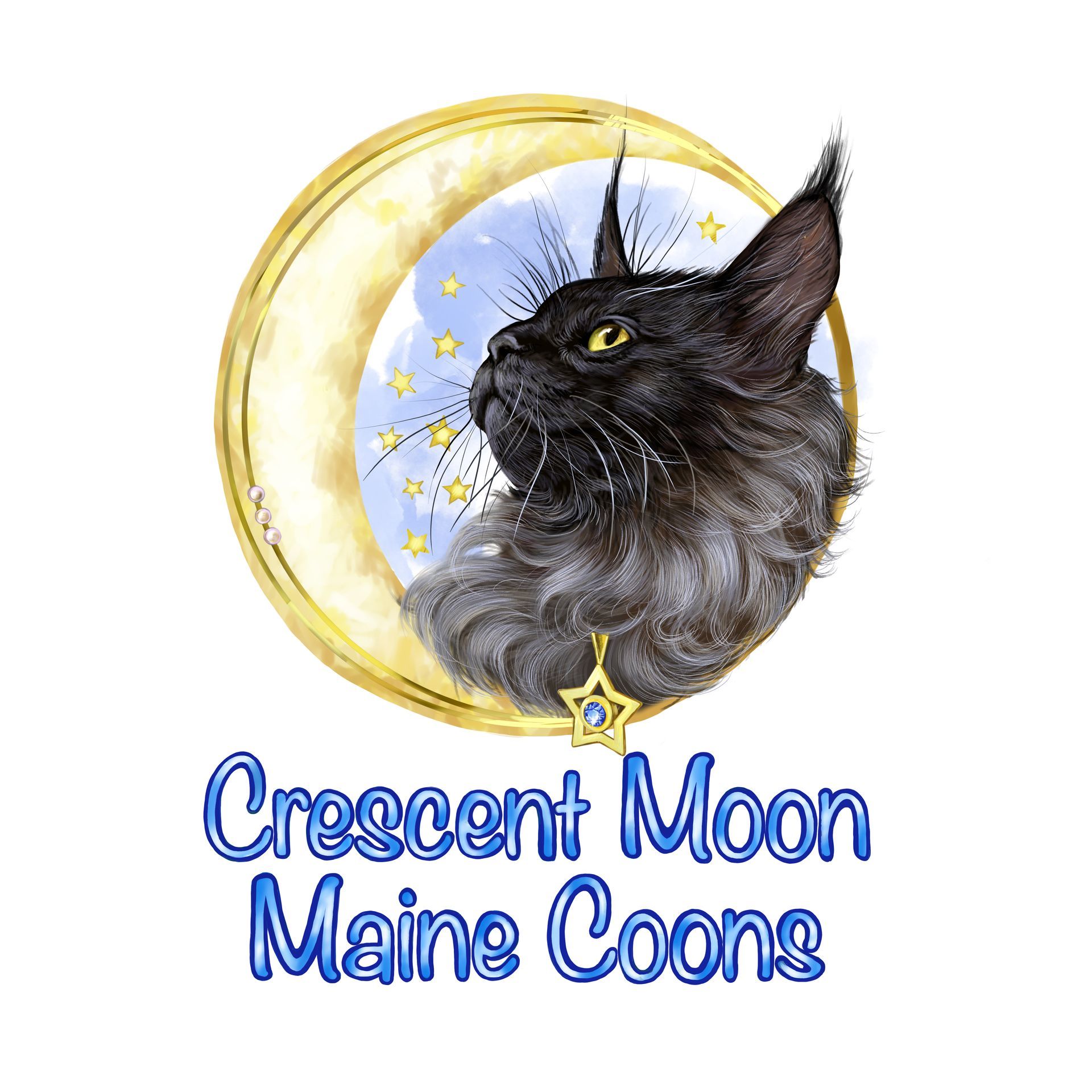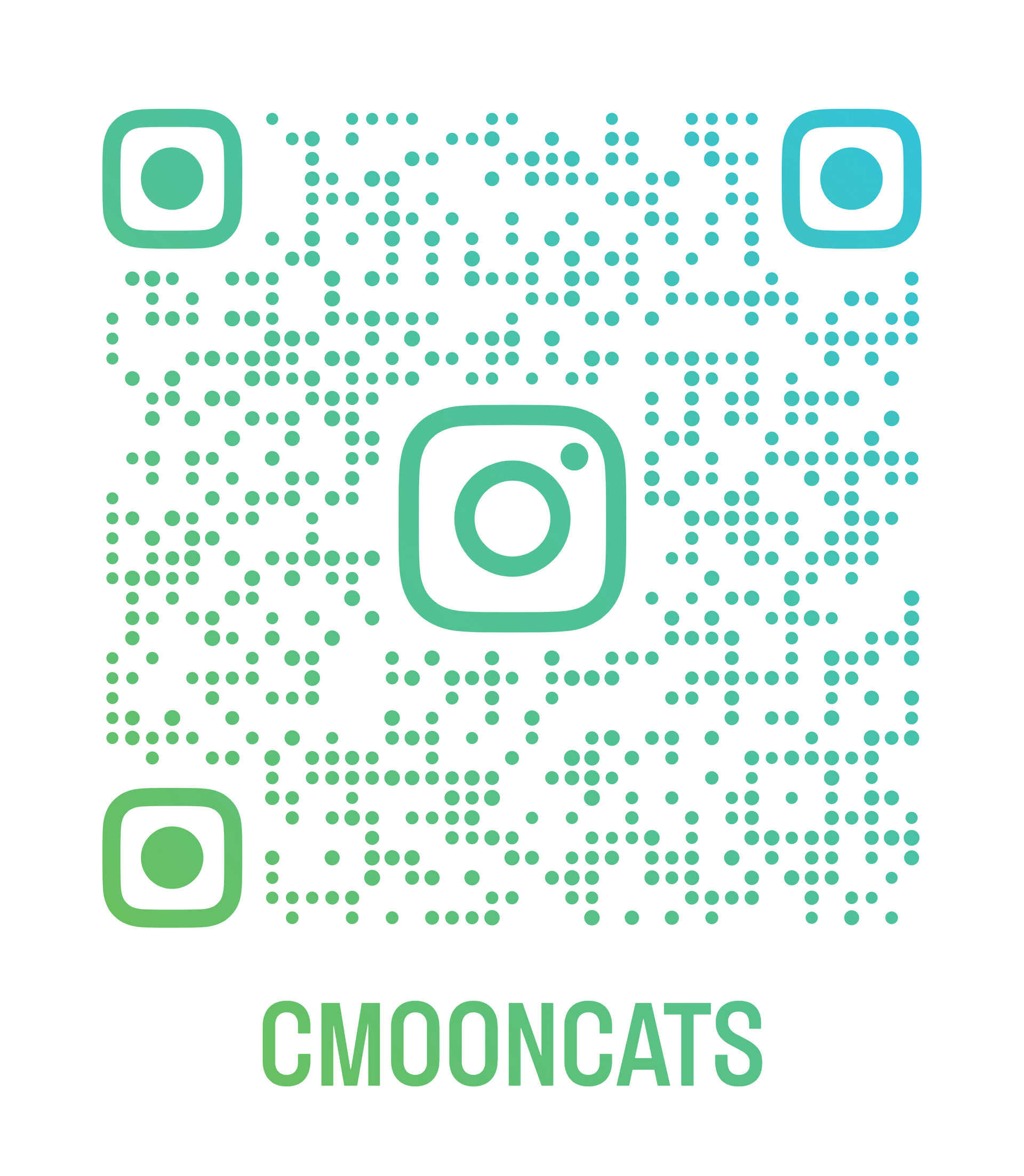Blog
Crescent Moon Maine Coons
How Big Are Maine Coons?
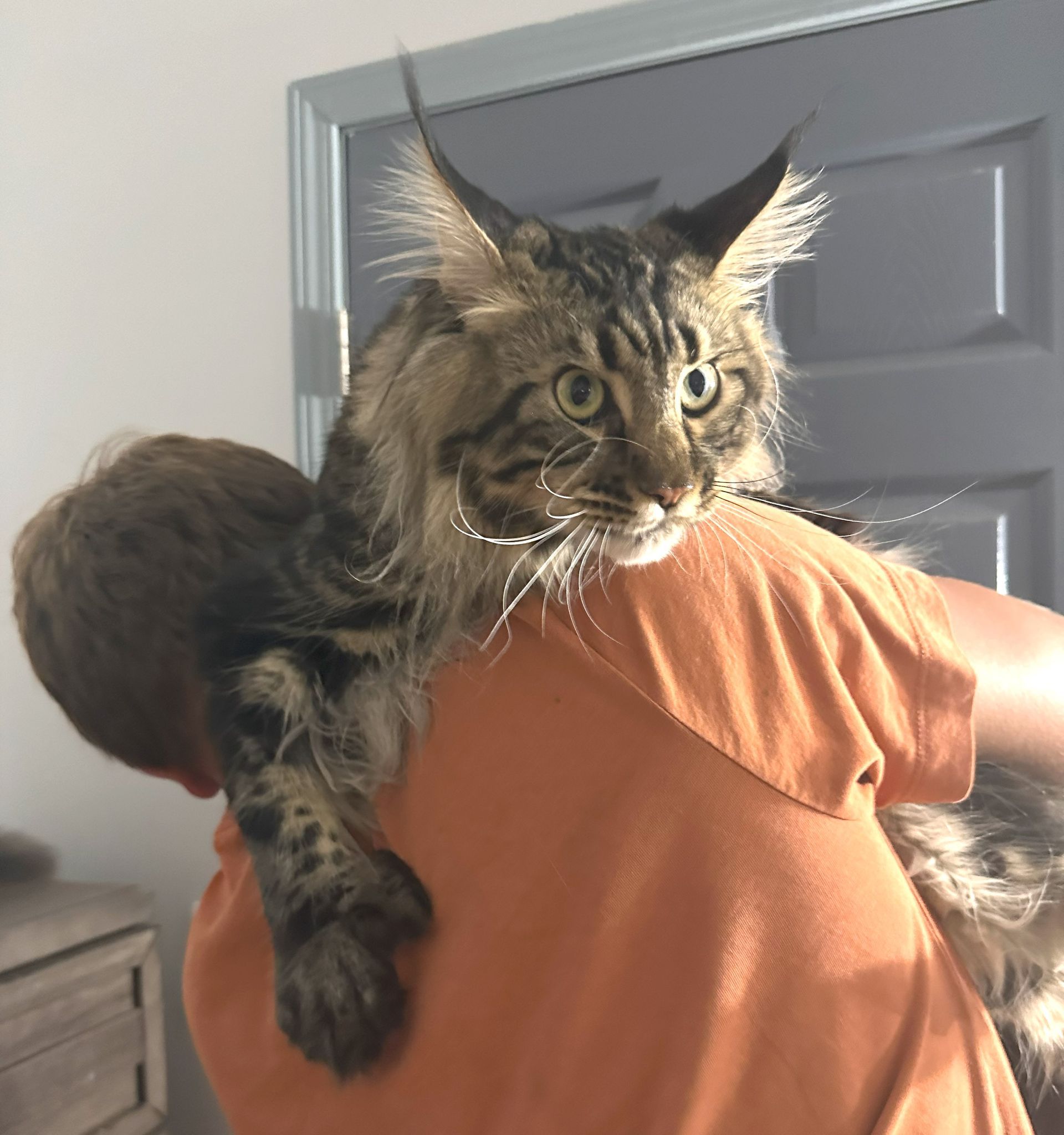
Maine Coons can get big, really big! The picture above shows one of our males, Gerard, at a year old with my son pictured at 15 years old. Males can weigh as much as 22-25 pounds and females can weigh typically 15-18 pounds. Then there is the length. Their bodies are very long and rectangular. Maine Coons are the largest breed and they are additionally slow growers. Maine Coons can grow until they are 4-5 years of age. So, Gerard has not grown into his adult size in the picture. He only weighs 15 pounds in the picture. Typical domesticated cats weigh between 8-11 pounds full grown. Many of my females at my cattery can get nearly as long as the males but weigh less because they are not as dense in bone structure. All of the Maine Coons get big, not just the males.
When looking at pictures of Maine Coons pay attention to the angles. There are people who take pictures of Maine Coons at certain angles that exaggerate their size. There are many impressive features of a Maine Coon than their size alone. Some individuals are stuck on that one factor (it is one of the first things many notice) and the bloodlines and temperament may not be considered which hurts the Maine Coon breed in the long run.
I will tell you, one of the first things that I noticed when I met my first Maine Coon was the size of the head. Their heads are large and impressive as is their body. My hand could fit between the ears as I pet the cat and the bone structure is substantial. It is important to note that the weight of a Maine Coon needs to be healthy and the body needs to be muscular as the cat grows over the years. Otherwise, you have an overweight cat that can be prone to disease due to obesity.
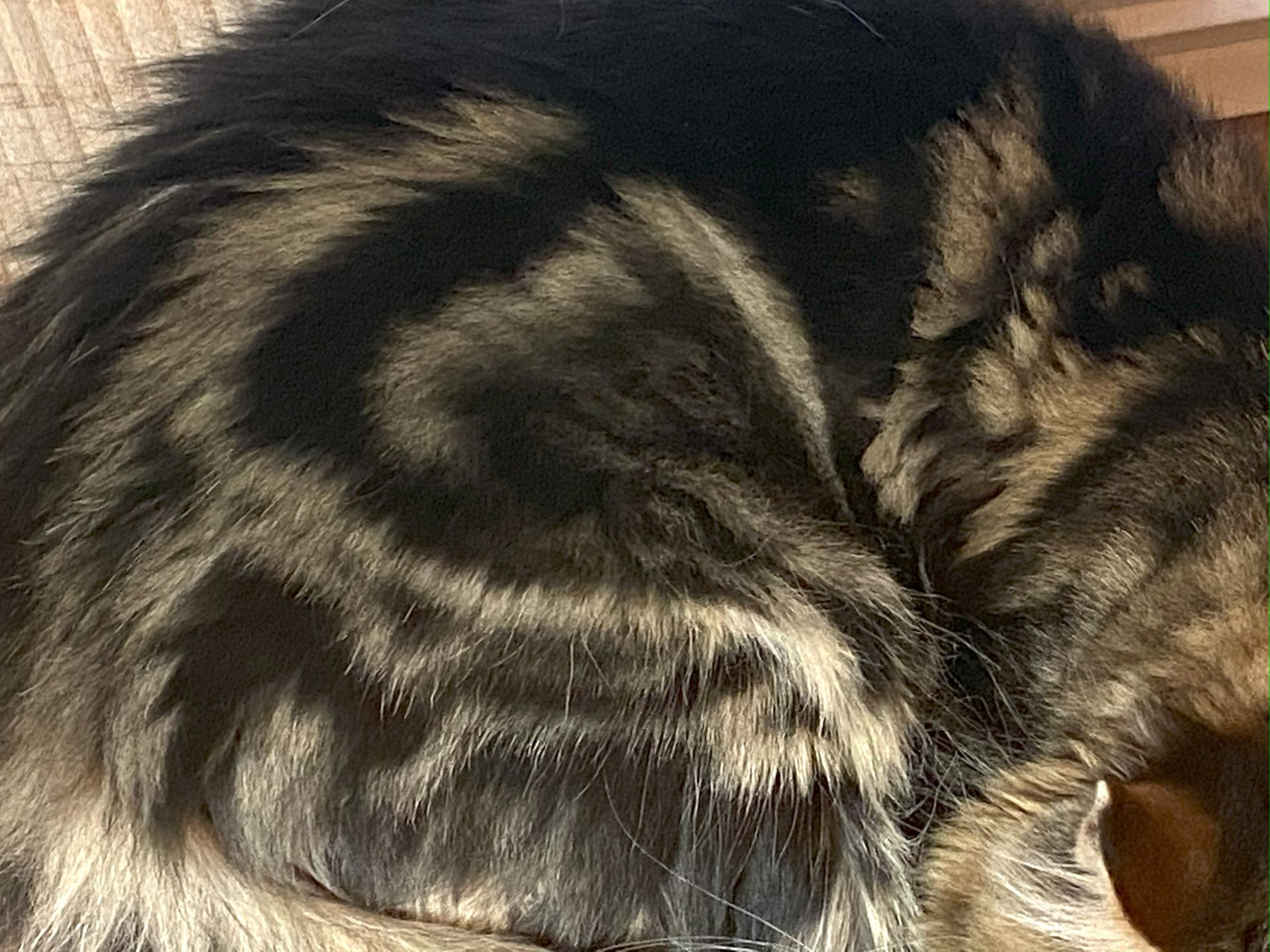
It is that time of year to really think about fleas and ticks. They exist year-round but are especially troublesome in the spring and summer months. Maine Coons have gorgeous coats of fur that fleas and ticks can hide in. You need to have a flea and tick prevention plan in place as soon as you get your Maine Coon. Even if your Maine Coon is strictly indoors a flea and tick prevention is still needed. Those pests can be nearly everywhere and even hitch a ride on your pants or socks. I personally like the topical prevention. I often use Selarid because not only does it kill fleas and ticks, it prevents them from hatching and acts as a line of defense against parasites too. You just apply this to your kitten (make sure it meets age and weight requirements) or cat once a month. Selarid protects against parasites such as ear mites and hookworms also. There are other topicals and Advantage II or XD can be effective against fleas and ticks. If you do not care for topicals and want a collar then Seresto would be my recommendation. I have not personally used it on my Maine Coon cats but have used it on my dogs and have been happy with it over the years. One thing to keep in mind with a collar is to brush the ruff (lion's mane) of a Maine Coon and check on the collar regularly to make sure the collar does not create mats. If you find a flea on your Maine Coon I advise trying Capstar oral tablets. You do not need a prescription for it and it kills fleas quickly. I found a flea on one of my Maine Coons as I was staying in a hotel that allowed pets. I already had a treatment on my cat but did not want to wait. I used Capstar and I did not find any other fleas. Further, you can use a flea comb on any age kitten and on your Maine Coon to check for fleas. If you do happen to catch a flea then put it in a container of warm water with dish soap in it to kill the flea. Have the soap water ready just in case. To manage your home there are sprays. The Wondercide flea and tick spray is an all natural spray that you can safely use around your pets. Whatever you use, make sure that is safe to use around pets so you can spray your cat's bedding and cat trees. There are many options and your veterinarian can also offer some good suggestions. There are monthly and bi-monthly chews along with other choices that you can get through your veterinarian. Good luck in keeping the pests away!
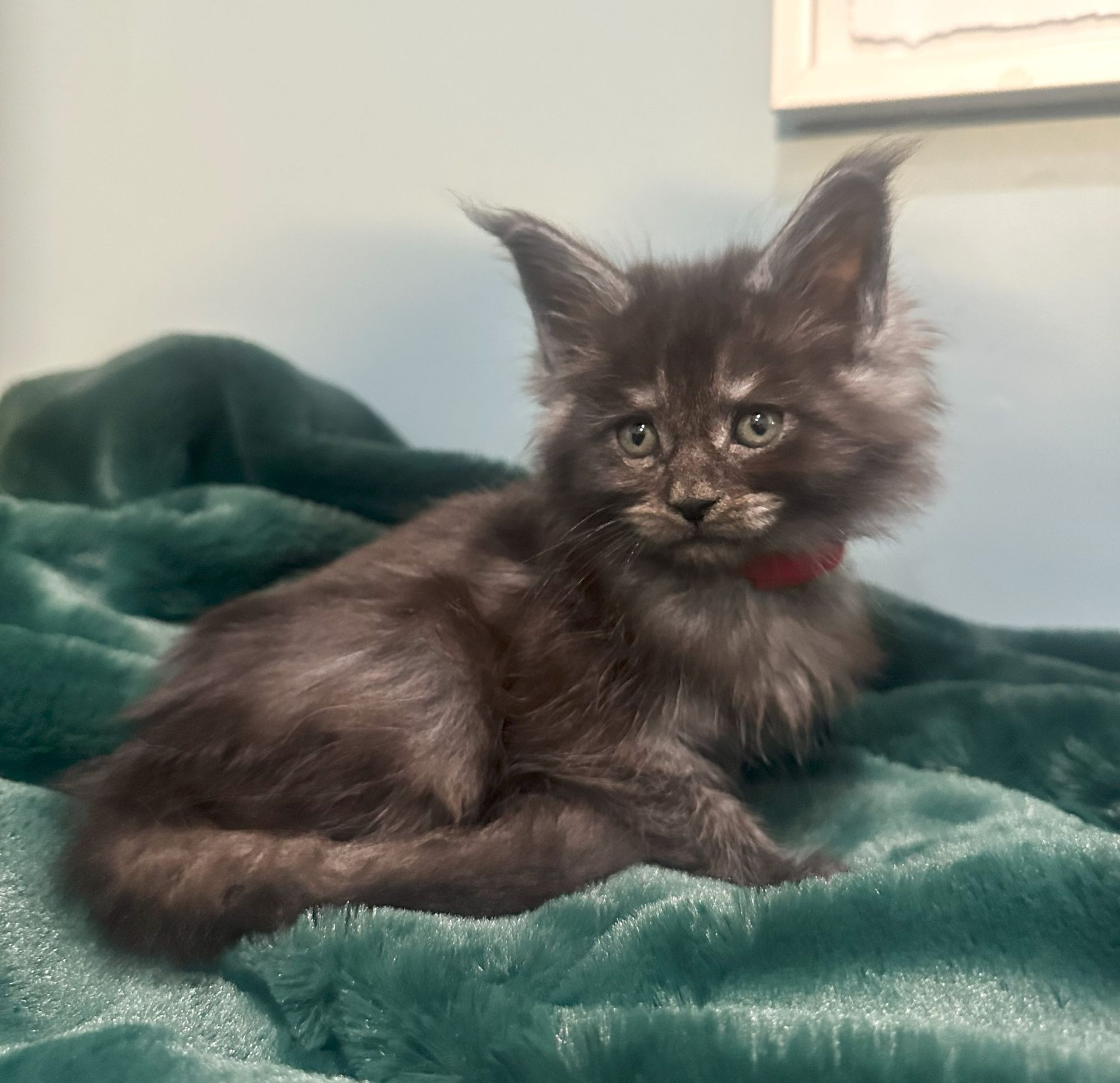
Black smoke Maine Coons are just like other Maine Coons with the exception of their color. They are considered solid, just like a solid black cat but there is silver in their coat. They do not have any tabby markings that is why they are considered solid. The difference between a solid black Maine Coon and a black smoke Maine Coon is that there are silver roots found on the coat of the black smoke. When the fur parts, you can see the silver "smoke" of the coat which is quite striking. There are some other breeds that you can find in a black smoke color too. If a black smoke cat walks away from you with their tail high in the air their smoke will show clearly as the black parts to expose the roots. In kittens, it is typically easy to see the smoke when the kitten is a few weeks old and the silver is filling in. Some kittens may have a brown cast to their fur as a result of their mother cleaning them which will go away as they become independent and the fur grows. An ideal black smoke looks like a black Maine Coon when not moving but as soon as their is movement the fur opens up to let the silver "smoke" roots shine! A high smoke or high silver Maine Coon means that there is a lot of smoke to the coat and you can see it even when the cat is not moving. Everyone has their personal preference in black smoke pet Maine Coons. No matter what, they are one of the many beautiful colors seen on Maine Coons!
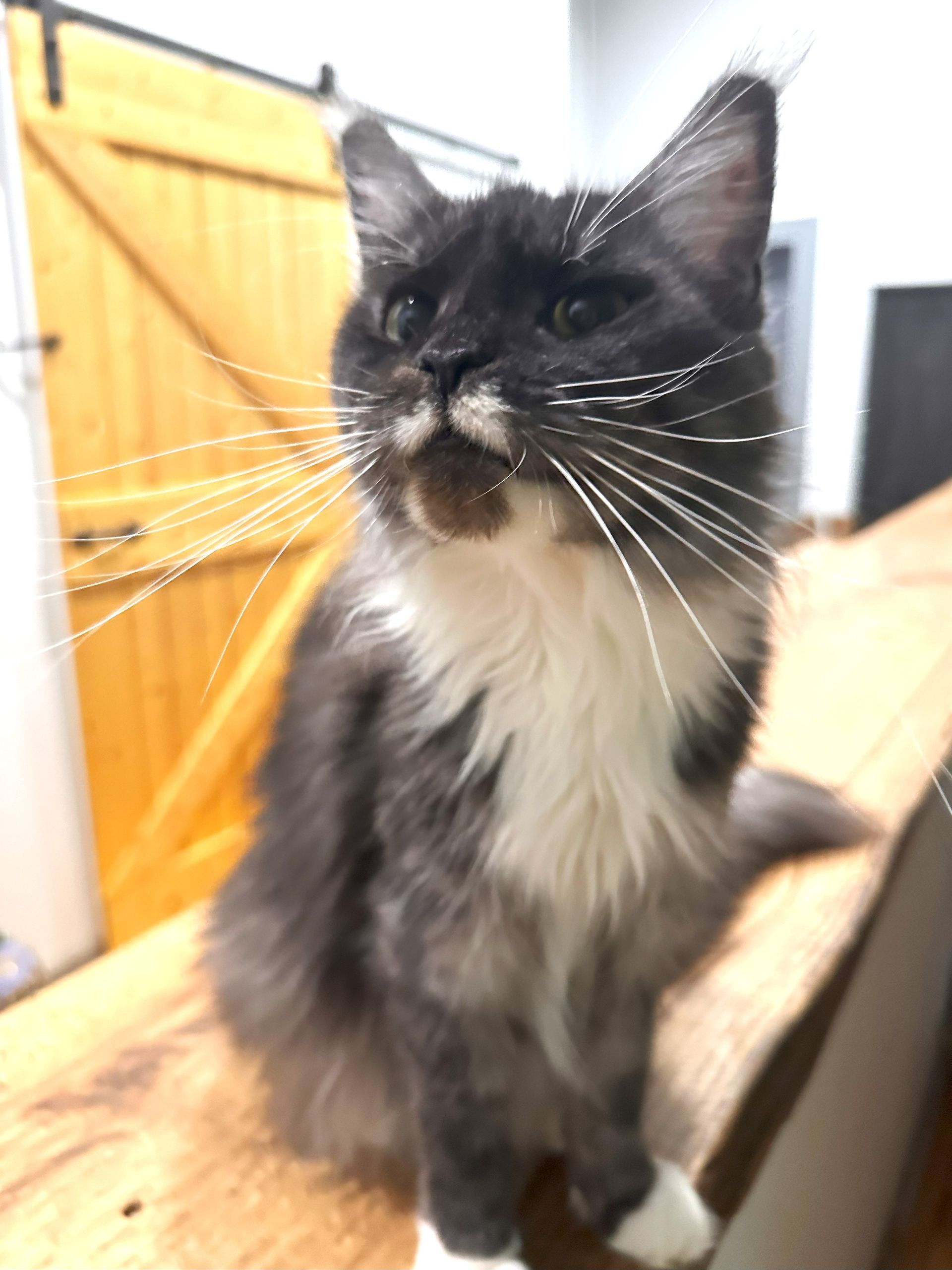
Which breed of cat is known for having the longest whiskers? You guessed it, the Maine Coon cat. The world's longest cat whiskers are often held by Maine Coons. Why the long whiskers? Cats use the whiskers to feel their way around. They are especially useful at night or when a cat cannot see very easily. They are similar to the vintage whisker feelers (curb feelers) on cars. Whiskers aid in navigation. Also, it helps Maine Coons catch prey and feel where the prey is. Maine Coons are wonderful hunters because of this! A couple of things to keep in mind with your Maine Coon, or any cat for that matter, is to not ever trim the whiskers. They are needed. Just like you need your eyelashes, the whiskers are an important part of Maine Coons and serve a purpose. Also, since Maine Coons have extra long whiskers you need to be aware of whisker fatigue. I know, I thought it was a marketing ploy but I tested my cats and it is true. Maine Coons can get overly stimulated by the brushing and bumping of their whiskers. It can get to be annoying to the cat. The whiskers are tactile hairs and the cat constantly feels them. This new knowledge I had led to me doing research years ago with my cats in my cattery with whisker bowls. Most bowls are not wide enough for the world's longest cat whiskers. So, the cat's whiskers are moved each time a Maine Coon eats or drinks from a bowl. A whisker fatigue bowl, on the other hand, has a wider diameter so the Maine Coon's whiskers are not brushed back while the cat eats or drinks. Now, on to my experiment in my cattery. I usually used large dog bowls for my adult Maine Coons. I wondered if any of my cats were actually experiencing whisker fatigue and if it was a real thing. So, I purchased a few whisker fatigue bowls. Just make sure they have a larger diameter than a typical pet bowl. You can be discriminate in what type of bowl but I will leave that information for another post at another time. I let all the cats in my cattery have access to large pet bowls and whisker fatigue bowls. Yes, most of my cats repeatedly went straight to the whisker fatigue bowls and have used them for years now. Many of my cats really do prefer the whisker fatigue bowls and I am glad that I did an in house experiment to see for myself. I do use some large pet bowls still since Maine Coons eat a lot and like to have certain levels of kibble but I do notice my whisker fatigue bowls go empty first. It isn't the food I put in it or any other factor but the bowls themselves. So, I would recommend whisker fatigue bowls for your Maine Coon or long whiskered cat!
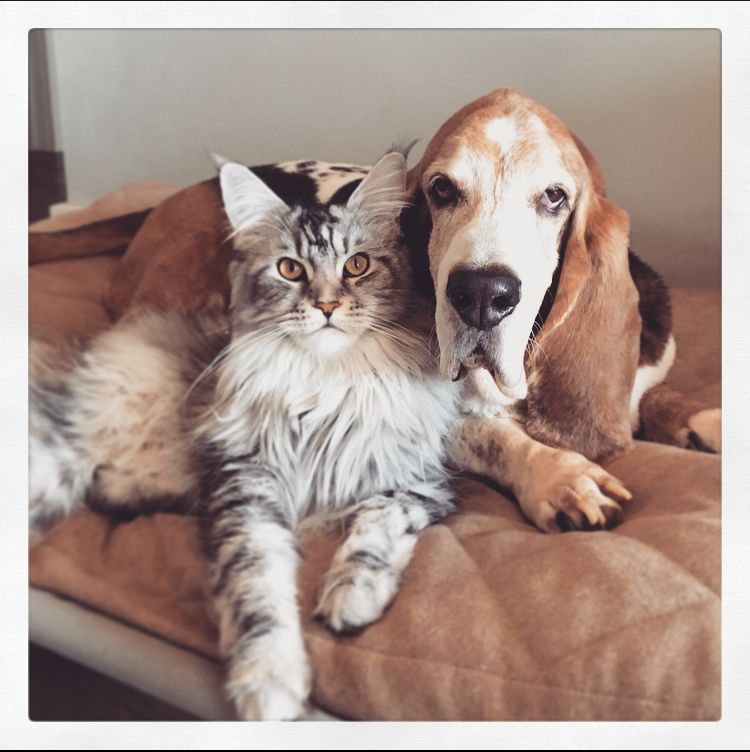
Many people ask if Maine Coons are compatible with dogs. I often ask them, is your dog compatible with a Maine Coon? First of all, Maine Coons are known for their gentle demeanor and willingness to form bonds with other animals. They generally want to make new friends. A kitten is often fairly easy going and open to making friends with dogs, especially if they have been socialized and bred for temperament. Besides appearances and health, good breeders will breed for temperament to ensure a stable line of Maine Coons is established. Further, kittens need to be raised closely with a breeder and family/friends in order to become socialized. If there are pets in the breeders home, that adds to the socialization. Often a kitten is going home into a household with an existing family dog (or dogs) and everyone wants all members to get along of course. When any new animal is being brought into a new home environment it is crucial to consider the stress the new animal is undergoing just by leaving one home (smells, sounds, schedule, litter mates, family members, etc.) and going into another brand new home environment. Now secondly, before getting a Maine Coon, you want to make sure that your dog is good around kittens and cats. See how they behave around them and you can have them smell a blanket or clothes with the kitten scent on it before meeting the Maine Coon. The introduction of the new animal, in this case a Maine Coon, needs to be introduced to everything and everyone gradually. Make sure your new Maine Coon gets to know you as her or his new owner first and other key people in the household. You want to bond with your new Maine Coon and give them time to get to know you and vice versa. It establishes a level of trust and the bond is a special one. I suggest having a room set up, like your bedroom, for the Maine Coon so that the kitten (or cat) can get to know you and feels safe. In the room, set up a litter box (can be temporary), food and water, toys and a cat tree or ledges that allows the kitten to climb high. This is the third step which is ensuring that your kitten has some safe places. Ideally give the kitten a night with you before introducing the dog. When you feel the time is right, slowly allow your dog supervised visits. Make sure that the kitten is greeted warmly and that the two are safely checking each other out. The kitten (or cat) may hiss the first couple of times but do not worry she/he is establishing boundaries and it is a natural reaction. Make sure that your dog is friendly and does not play too rough with the kitten. The meeting and getting to know one another needs to be slow until you are completely sure that the kitten and dog are becoming friends and happy to be around one another. Finally, allow the kitten free reign of the environment and dog once they have established boundaries and have proven to be happily co-existing. The friendship will grow between them as they spend more and more time together. Be cautious when your kitten goes around your dog's food. Maine Coons are often hungry, will eat most things and even a well mannered dog may not care for them going for the food bowl, at least not right away. Following these steps and observing the dog and Maine Coon's interactions will let you know that they may be skeptical of one another at first but are more than likely on the way to becoming close fur friends, possibly besties!
